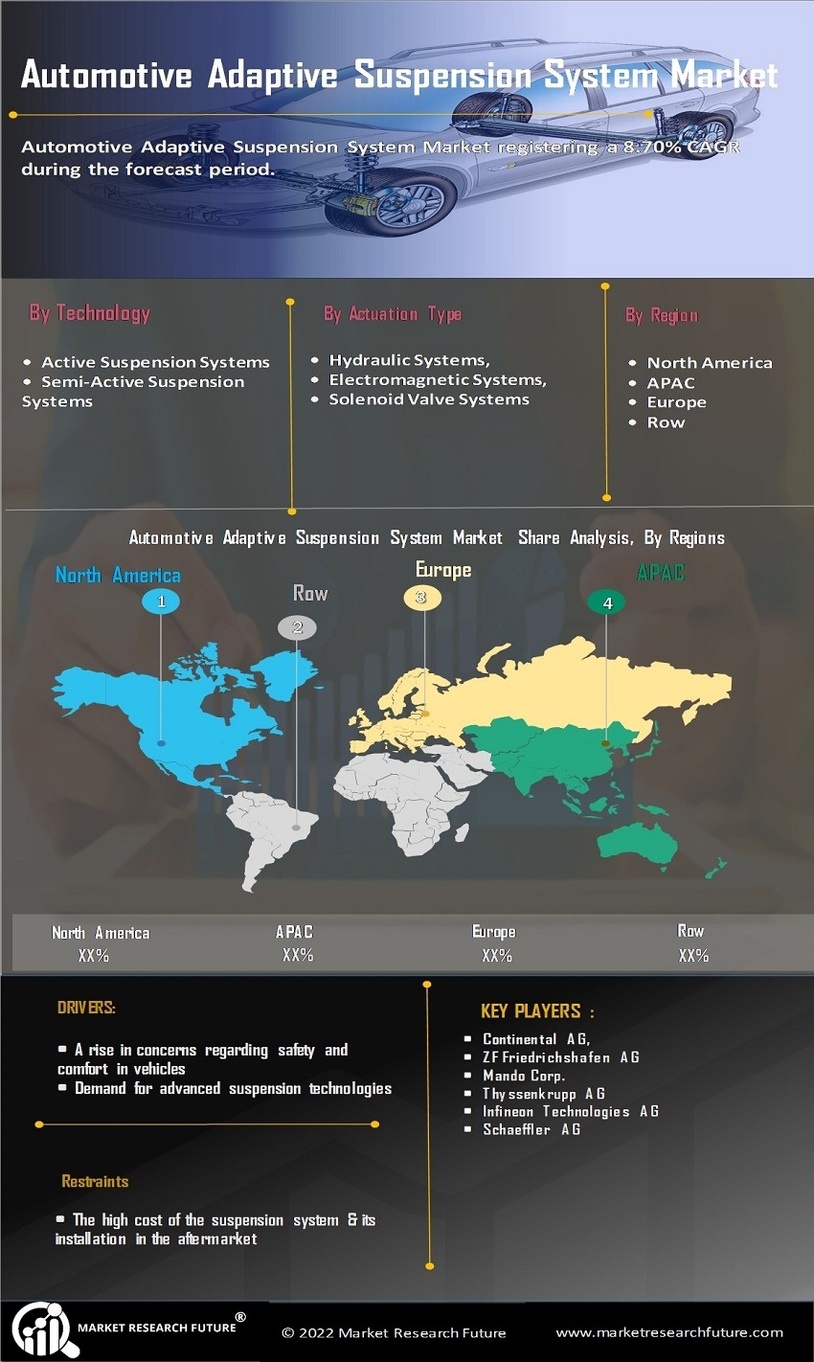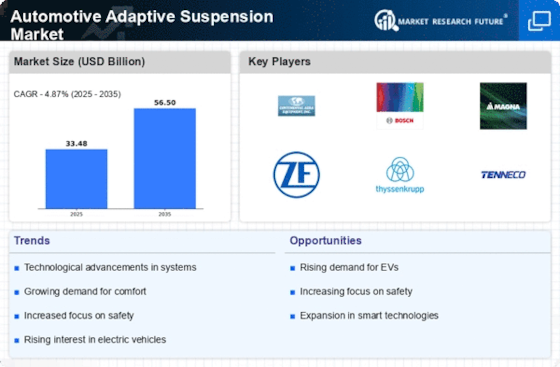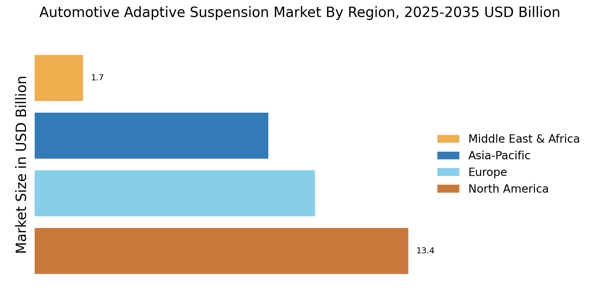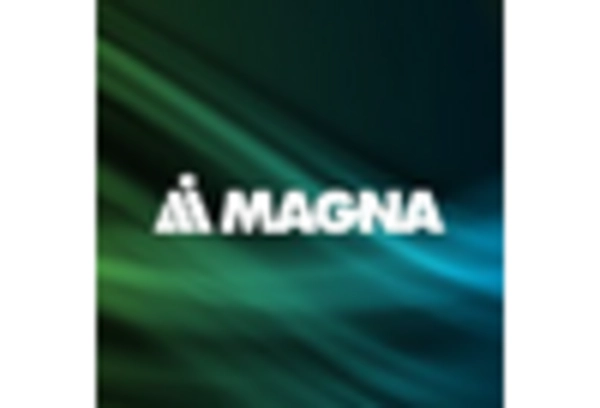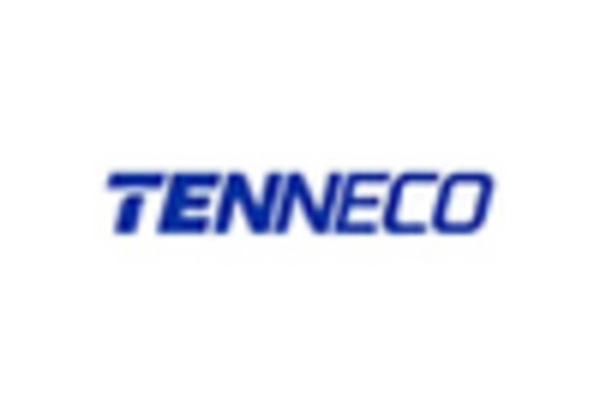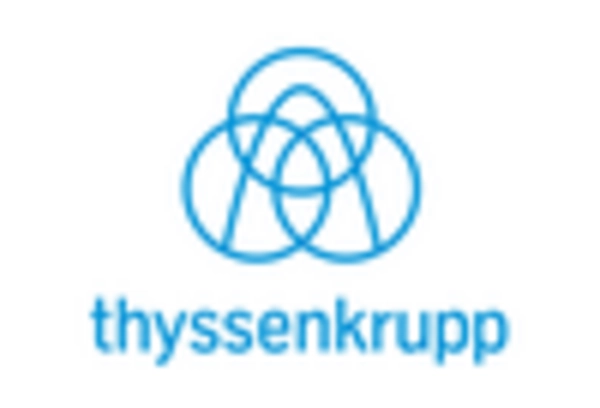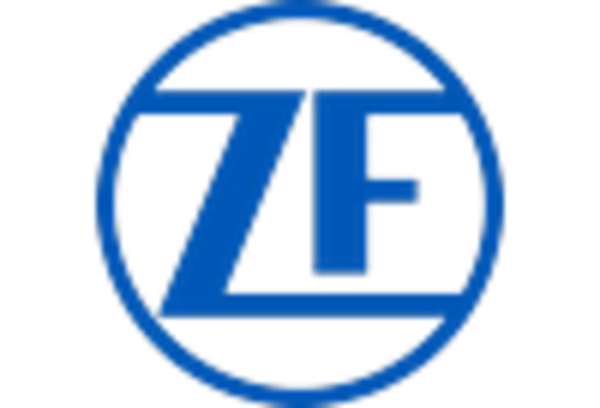Rising Popularity of Electric Vehicles
The Automotive Adaptive Suspension Market is poised for growth due to the rising popularity of electric vehicles (EVs). As the automotive industry shifts towards electrification, manufacturers are increasingly incorporating advanced suspension technologies to enhance the performance and comfort of EVs. Adaptive suspension systems are particularly beneficial for electric vehicles, as they can help manage the unique weight distribution and handling characteristics associated with battery placement. Market analysis suggests that the integration of adaptive suspension in EVs could become a standard feature, driven by consumer expectations for high performance and comfort. This trend indicates a significant opportunity for growth within the adaptive suspension market as the EV segment continues to expand.
Regulatory Support for Emission Reduction
The Automotive Adaptive Suspension Market is benefiting from regulatory support aimed at reducing vehicle emissions and improving fuel efficiency. Governments worldwide are implementing stringent regulations that encourage manufacturers to adopt technologies that enhance vehicle performance while minimizing environmental impact. Adaptive suspension systems contribute to this goal by optimizing vehicle dynamics, which can lead to improved fuel economy. For instance, vehicles equipped with adaptive suspension can adjust their ride height and stiffness, reducing drag and enhancing aerodynamics. As a result, the market for these systems is likely to expand as manufacturers seek compliance with evolving regulations. This regulatory landscape creates a favorable environment for the growth of the adaptive suspension market.
Increased Investment in Research and Development
Investment in research and development is a key driver of the Automotive Adaptive Suspension Market. Manufacturers are allocating substantial resources to innovate and improve suspension technologies, aiming to enhance vehicle performance and safety. This focus on R&D is leading to the development of next-generation adaptive suspension systems that offer improved responsiveness and adaptability to various driving conditions. Market data reveals that companies investing in advanced materials and smart technologies are likely to gain a competitive edge. As the automotive landscape evolves, the emphasis on R&D will continue to shape the adaptive suspension market, fostering innovation and driving growth in this sector.
Increased Consumer Demand for Enhanced Driving Experience
Consumer preferences are shifting towards vehicles that offer superior driving experiences, which is propelling the Automotive Adaptive Suspension Market. As consumers become more discerning, they seek vehicles that not only provide comfort but also deliver dynamic handling capabilities. The demand for adaptive suspension systems is particularly pronounced in the luxury and performance vehicle segments, where consumers expect high levels of customization and responsiveness. Market data indicates that the adoption of adaptive suspension systems in mid-range vehicles is also on the rise, as manufacturers aim to meet consumer expectations for enhanced ride quality. This trend suggests a broader acceptance of advanced suspension technologies across various vehicle categories, further driving market growth.
Technological Advancements in Automotive Adaptive Suspension
The Automotive Adaptive Suspension Market is experiencing a surge in technological advancements that enhance vehicle performance and comfort. Innovations such as electronically controlled dampers and air suspension systems are becoming increasingly prevalent. These technologies allow for real-time adjustments to suspension settings based on road conditions and driving behavior. As a result, vehicles equipped with adaptive suspension systems can provide improved handling, stability, and ride quality. According to recent data, the market for adaptive suspension systems is projected to grow at a compound annual growth rate of approximately 8% over the next five years. This growth is driven by the increasing integration of advanced driver-assistance systems (ADAS) and the rising demand for luxury vehicles that prioritize comfort and performance.
